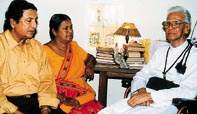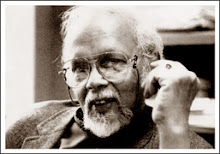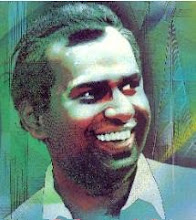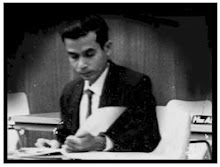Author: Neloufer De Mel
Date:01/03/2004
African plays have had a special relevance to the contemporary post-colonial world. Their dramatizations of post-colonial governance, the authoritarian State, racism, corruption, militarization and violence strike a chord wherever in the post-colonial world they have been performed. But even as they expose the failed utopias of the post-colonial dream, they are also testimonies to the humanity of ordinary people. A strong sense of community, moral justice, thoughtfulness about a fellow prisoner or a person poorer than themselves animate some of the downtrodden characters in these plays.
African plays have travelled to Sri Lanka, and from the 1980s onwards Sri Lankan audiences have seen the plays of Ngugi wa Thiong'o, Femi Osofisan, Wole Soyinka and Athol Fugard. These plays have been performed by semi-professional groups, university theatre groups and schools. The latest African play to be performed here is Pujitha de Mel's production of Mbongeni Ngema's Asinamali. Mbongeni Ngema, a South African, was one of the co-authors of the acclaimed play Woza Albert, and many of Asinamali's stage techniques are similar to those in Woza Albert. The multiple roles the actors play, the multiple uses to which stage props are put, the minimal stage set, the politically charged songs and dialogue which have become hallmarks of the modern African play are to be seen in Asinamali. "Asinamali" is a freedom slogan which has its particular history in the struggle of black South Africans against apartheid. It means "Nothing to Lose".
Pujitha de Mel does not translate this slogan to Sinhala - he keeps it as it is, its meaning explained just once in the play. The slogan is one which can be understood by any dispossessed people. With nothing more to lose, the struggle to make one's society a better place with fair justice and equality for all is the only choice left.
The story of the play brings together five prisoners from various parts of South Africa. They are incarcerated at Leeuwkop Prison, guarded and policed by Afrikaaners and their black cohorts. The structure of the play takes the form of several 'plays' within the play, as each of the prisoners enact their experiences - their former lives, their political mentors, and their crimes. All of them are petty thieves, small-time criminals and each one of them is sexist, aggressively male, and active participants in political violence.
The challenge for the audience was to understand and sympathize with them as victims of a pernicious political and socio-economic structure, even as we understood that they were not one's idea of an honest man, servant, neighbour or good husband. The outstanding success of Pujitha de Mel's production was that it maintained the energy needed throughout to emphasize the strong male bonding between the five prisoners. All the actors were perfectly attuned to each other, and exuded energy that kept the intensity of the play perfectly maintained and balanced throughout the performance. Priyankara Ratnayake was quite outstanding as Bheki Mqadi, and superbly supported by Vishwajith Gunasekera as Bongani Hlophe/the prison warder and Sanjaya Hettiarachchi as Solomzi Bhisholo.
The pernicious system of apartheid which kept black South Africans as second class citizens in their homeland for so long is the real villain in the play, but apartheid as an ideology could not have kept going without its institutionalization in every walk of South African life. The State's surveillance and policing of its people, the pass book and certificate for which forms had to be filled (often by illiterate people) for permission to cross borders, work in white areas, marry and live in certain neighbourhoods regulated the movement, professions and family life of black men and women. Their citizenship was not based on inclusion but exclusion from all of the privileges the white South African was entitled to within the nation. The State's racist bureaucracy, corruption and militarization were other tools of socio-political control. The prisoners in Asinamali play the roles of their regulators well when the play requires them to turn from being the accused to the accuser. For they know the system first-hand. The sadistic violence of the interrogator as he exerts his power over the prisoner, the harassment of having to face an endless bureaucracy in order to obtain a pass, a marriage certificate or work permit stands for how the black South African was denied the status of full citizenship and deprived of basic civil and political rights.
Yet, there is also a prison sergeant who passes the prisoners a cigarette through the keyhole, eliciting their genuine, albeit exaggerated, gratitude. Nobel laureate Wole Soyinka who was detained without trial for 27 months by the Nigerian military government during 1967-69, wrote in his prison memoirs entitled The Man Died that it was the small acts of the prison warders as they brought him a newspaper, shared food or exchanged views of Nigerian politics that enabled him to keep his humanity alive during solitary confinement.
In Asinamali we have testimony to the solidarity of the oppressed. As the play ends with hope for the prisoners, as their sentences are remitted, Bhoyi insists on remembering the other detainees who are not so lucky. It is this sense of brotherhood that will enable them, as their final song implies, to successfully face the day of reckoning. Asinamali is a riveting production about hope from despair.



 යාට යමක් දනවන්න තියෙන හැකියාව වැඩියි. ප්රේක්ෂකයන් වැඩි පිරිසක් අතරට යන්නත් මෙයින් අවකාශ සැලසෙනවා. වේදිකාව මගේ ප්රකාශන මාධ්ය වෙන්න මේ කරුණුත් බලපෑවා.
යාට යමක් දනවන්න තියෙන හැකියාව වැඩියි. ප්රේක්ෂකයන් වැඩි පිරිසක් අතරට යන්නත් මෙයින් අවකාශ සැලසෙනවා. වේදිකාව මගේ ප්රකාශන මාධ්ය වෙන්න මේ කරුණුත් බලපෑවා.
 අනික අද අපි ජීවත් වෙන්නේ තරුණකම බොහොම කැත විදිහට මාකට් කරන සමාජයක. ඒ වගේම සමාජයට අහිතකර බොහෝමයක් දේ තිබියදී ඇයි කලාව විතරක් වාරණය කරන්නේ කියන එකයි අපට තියෙන ප්රශ්නේ.
අනික අද අපි ජීවත් වෙන්නේ තරුණකම බොහොම කැත විදිහට මාකට් කරන සමාජයක. ඒ වගේම සමාජයට අහිතකර බොහෝමයක් දේ තිබියදී ඇයි කලාව විතරක් වාරණය කරන්නේ කියන එකයි අපට තියෙන ප්රශ්නේ.

































